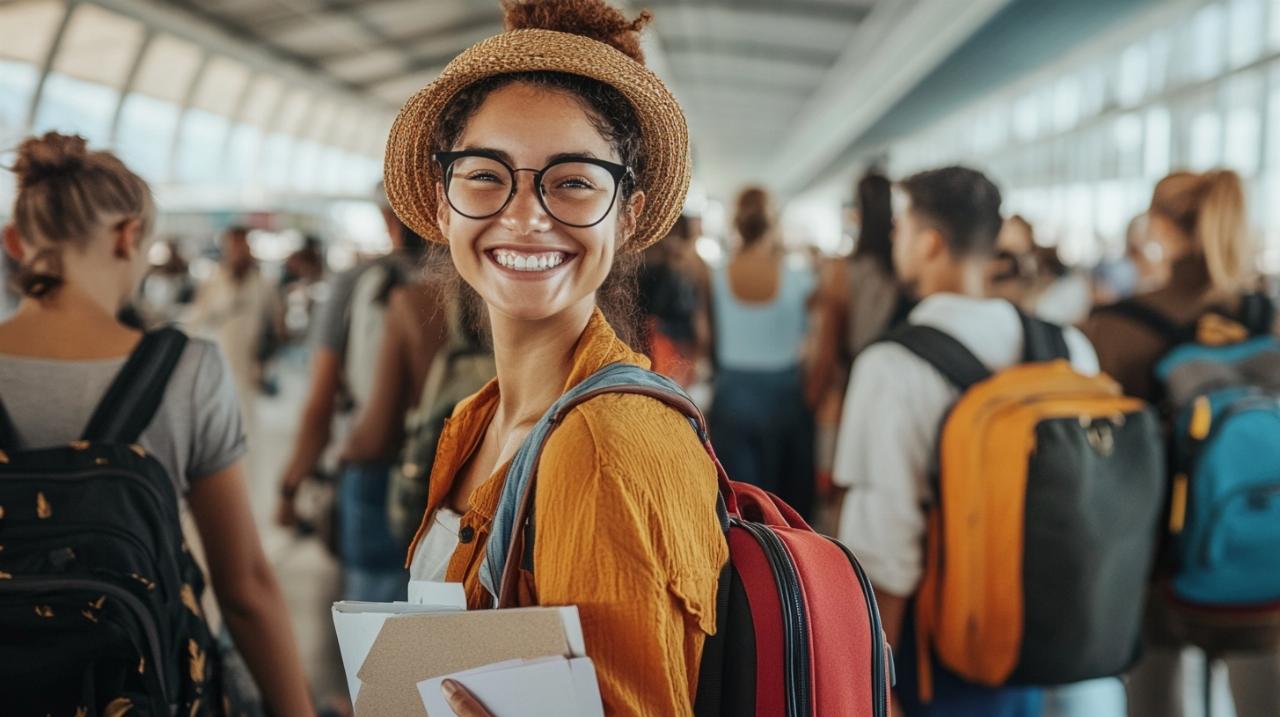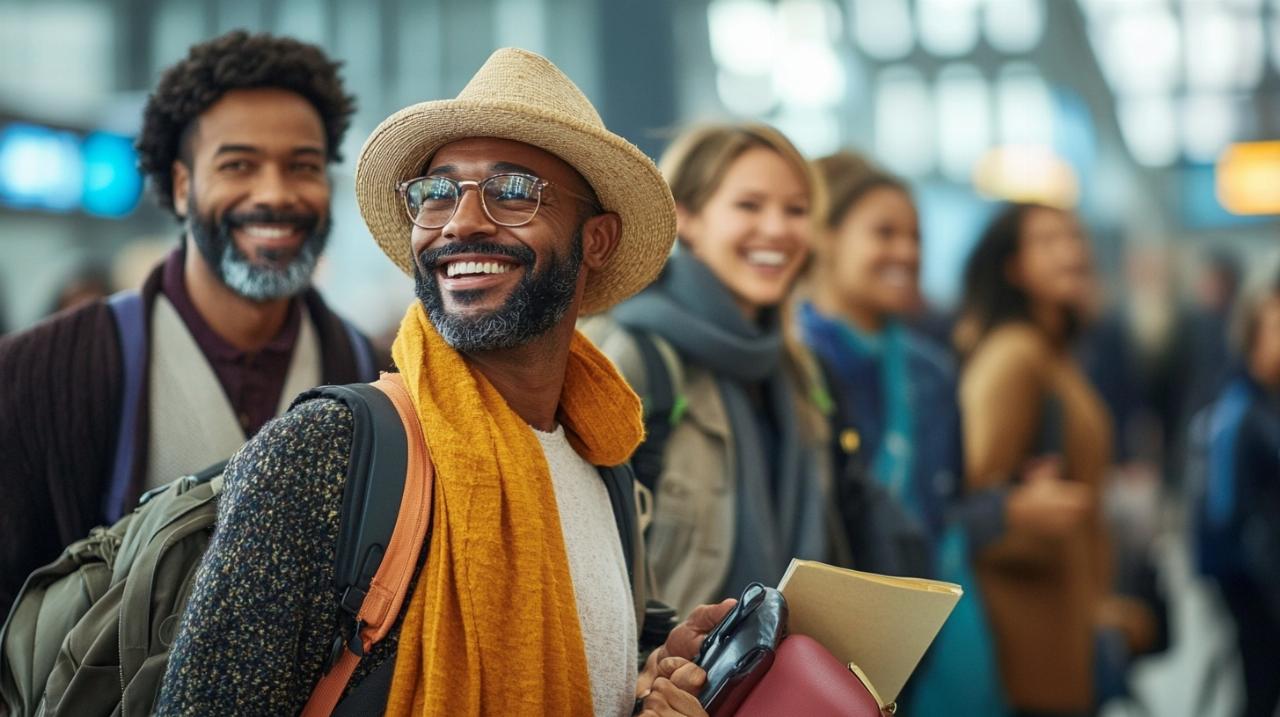Embarking on a journey, whether for business or pleasure, can be an exciting adventure. However, without proper preparation, it can quickly turn into a stressful experience. This guide will help you navigate the complexities of travel with practical advice to ensure your trips are as smooth and safe as possible.
Plan Ahead for a Hassle-Free Journey
Planning is the cornerstone of any successful trip. By taking time to organise your travel arrangements well in advance, you can avoid many common pitfalls that travellers face. According to travel experts at 4TravelInfo, proper planning not only reduces stress but also significantly enhances your overall travel experience.
Sorting your travel arrangements properly
Before setting off, thoroughly research your destination. Look into travel advisories, visa requirements, and local customs to avoid any unwelcome surprises. Book your transportation early to secure the best rates and preferred seating or cabins. It's also wise to familiarise yourself with the layout of airports or train stations you'll be using, as this can save precious time during transfers.
Booking accommodation in advance
Securing your lodging ahead of time is crucial, especially during peak travel seasons. For the first couple of nights at a new destination, prioritise location over luxury to help you acclimate and explore the area easily. Remember to save the address and contact details of your accommodation both digitally and on paper, as this information can be invaluable if you need directions or assistance.
Smart packing strategies
The art of packing efficiently can make or break your travel experience. Overpacking is one of the most common mistakes travellers make, leading to unnecessary stress and logistical challenges.
The art of travelling light
Embrace the minimalist approach by packing only what's essential for your journey. Select versatile clothing items that can be mixed and matched, and opt for fabrics that are easy to wash and quick to dry. Consider the climate and activities planned for your trip, and be realistic about what you'll actually use. This mindful approach not only makes navigating airports and public transport easier but also reduces the risk of losing belongings.
Essential items you shouldn't forget
While packing light is important, certain items are non-negotiable. Always include a basic first-aid kit, any prescription medications, travel adapters, and copies of important documents. For emergency situations, seasoned travellers recommend carrying at least a small amount of cash in the local currency. Personal security items like a small lock for your bags and a money belt can provide additional peace of mind in unfamiliar surroundings.
Staying connected whilst abroad
Maintaining communication capabilities is vital for both convenience and safety when travelling. In today's digital age, staying connected has become easier, but it still requires some forethought.
Mobile communication solutions
Before departure, check with your mobile provider about international roaming options or consider purchasing a local SIM card upon arrival for more affordable data and calling rates. In regions with limited or no mobile coverage, satellite phones or messengers might be worth considering, especially for remote adventures. Additionally, downloading offline translation apps can help bridge communication gaps in foreign countries.
Keeping your devices charged and ready
Travel with a reliable power bank to ensure your devices stay charged throughout long journeys. Invest in a universal adapter that works in multiple countries to avoid compatibility issues with foreign power outlets. Some travellers find solar chargers beneficial for extended outdoor excursions where traditional power sources are unavailable.
Safety measures every traveller should know
Travel safety encompasses both preventative measures and knowing how to respond in challenging situations. Being prepared can significantly reduce risks and provide confidence during your adventures.
Keeping your belongings secure
Use a money belt or hidden pouch for your passport, cards, and significant cash amounts. Only carry what you need for the day in an accessible wallet, leaving extras secured in your accommodation safe. When withdrawing money, opt for ATMs inside banks during business hours rather than street-side machines that might be compromised. Remain vigilant in crowded areas where pickpockets often operate, such as markets, public transport, and tourist attractions.
Being aware of your surroundings
Situational awareness is perhaps the most valuable travel skill you can develop. Take time to familiarise yourself with your accommodation and the surrounding neighbourhood upon arrival. Pay attention to the behaviour of people around you, particularly in unfamiliar environments. Trust your instincts if something feels off about a situation or location. When enjoying nightlife, do so in groups, watch your drinks carefully, and arrange reliable transportation back to your accommodation.
Maintaining good health during your travels
 Staying healthy is essential for enjoying your trip to the fullest. Different environments present various health challenges that require preparation and awareness.
Staying healthy is essential for enjoying your trip to the fullest. Different environments present various health challenges that require preparation and awareness.
Basic first-aid preparation
Pack a comprehensive first-aid kit tailored to your destination and activities. Include remedies for common travel ailments like digestive issues, pain relief, and fever reducers. For more adventurous trips, consider additional items like blister treatment, insect repellent, and sunburn relief. Inform your travel companions about any existing medical conditions and ensure they know where to find your medications in case of emergency.
Avoiding common travel illnesses
Take sensible precautions with food and water consumption, particularly in regions known for waterborne illnesses. Stay hydrated, but verify water safety before drinking. Maintain good hand hygiene, especially before eating and after using public facilities. Research any required vaccinations well in advance of your trip, as some may need to be administered several weeks before travel to be effective.
Cultural awareness and local etiquette
Respecting local customs enhances your travel experience and helps foster positive interactions with the communities you visit. It's also crucial for avoiding unintentional offence or even legal issues.
Understanding local customs
Before visiting a new country, learn about appropriate dress codes, dining etiquette, and greeting customs. Small efforts like learning a few basic phrases in the local language can go a long way in showing respect and opening doors to more authentic experiences. Observe how locals behave in public spaces and follow their lead regarding volume levels, physical space, and general comportment.
Navigating foreign laws and regulations
Remember that ignorance of local laws is rarely an acceptable excuse when travelling internationally. Research any specific regulations that might differ significantly from your home country, such as photography restrictions, alcohol consumption rules, or religious site protocols. When interacting with authorities like police or border officials, remain respectful and cooperative, even in challenging situations.
Document management for travellers
Proper handling of travel documents can prevent many common travel nightmares and provide crucial backup options when things go wrong.
Creating digital backups
Store scanned copies of your passport, visas, insurance policy, and other essential documents in a secure cloud storage service accessible from anywhere. Email copies to yourself and a trusted contact at home as an additional precaution. For extra security, encrypt these files or store them in a password-protected folder to prevent unauthorised access if your accounts are compromised.
Organising your important papers
Keep physical copies of crucial documents separate from the originals while travelling. A well-organised travel folder with printouts of reservations, emergency contacts, and insurance details can save significant stress during unexpected situations. Consider waterproof storage options to protect these papers from damage, especially if travelling during rainy seasons or engaging in water activities.
The importance of travel insurance
Travel insurance represents one of the most worthwhile investments for any journey, providing financial protection and assistance services when you're far from home.
Choosing the right coverage
Select a comprehensive policy that covers medical emergencies, trip cancellations, lost luggage, and personal liability. Consider your specific activities when choosing coverage; adventure sports or high-value equipment might require additional protection. Read the fine print regarding exclusions and claim requirements before purchasing to avoid unwelcome surprises when you need to use your policy.
Making claims when things go pear-shaped
Should you need to make a claim, documentation is vital. Take photos of valuable items before travel, keep all receipts for emergency purchases, and obtain police reports for any theft or loss. Contact your insurance provider as soon as possible after an incident occurs, as many policies have time limits for claim submissions. Following their specific procedures precisely will streamline the reimbursement process during what is already a stressful time.
